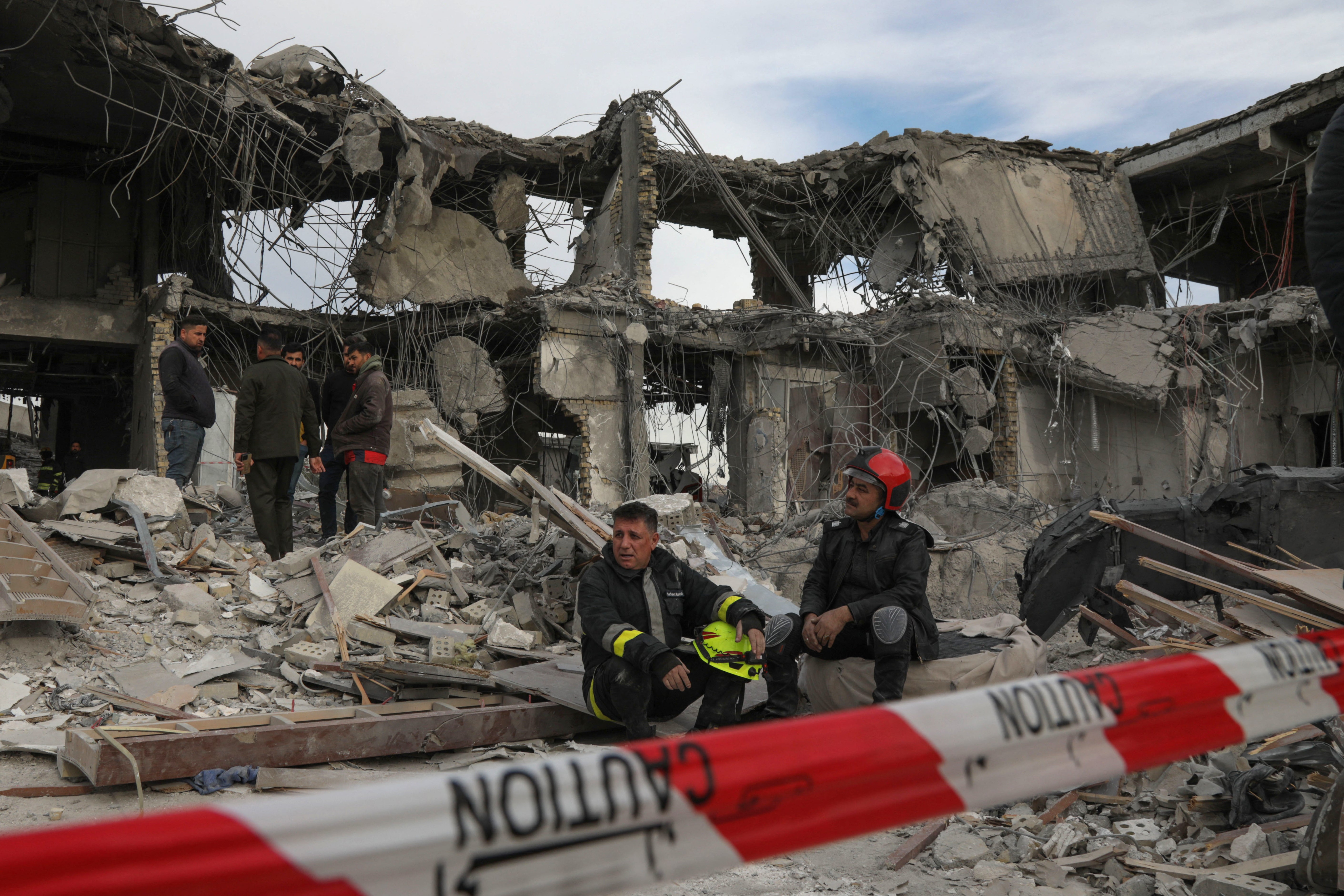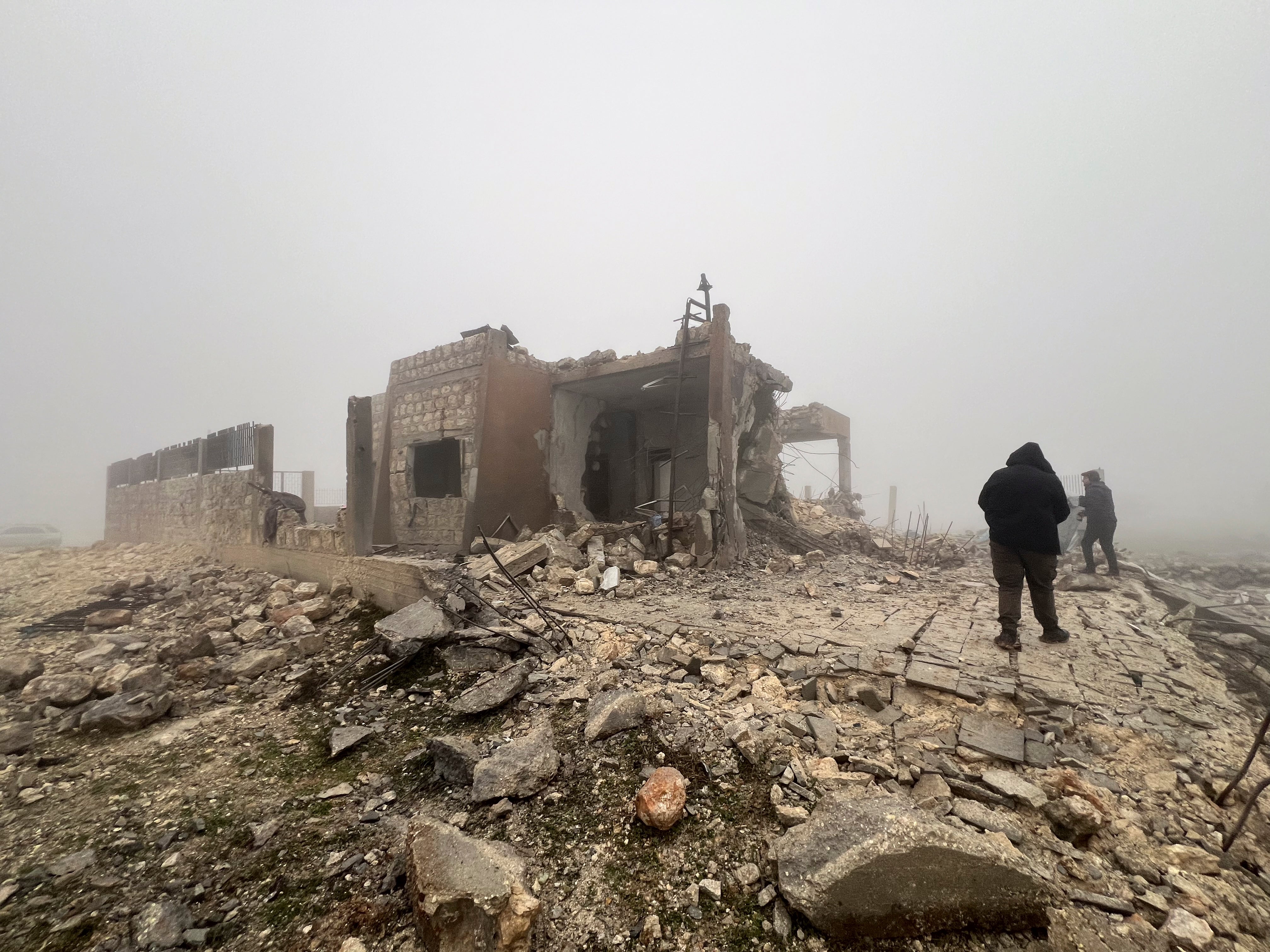Iran may be striking out at nations around it – but it will be wary of wider war in the Middle East
Tehran may see Western condemnation of Iranian airstrikes on Pakistan, Iraq and Syria as a bonus given that its actions are likely for the benefit of a domestic audience, writes Kim Sengupta. But it still raises the risk of a miscalculation at a time of high tension owing to the conflict in Gaza


Direct military actions by Iran outside its border are rare, despite often aggressive rhetoric to the contrary: this is because Tehran has built up a chain of proxy militias across the Middle East that can fight on its behalf when necessary.
Thus the series of strikes carried out by Iran on three of its neighbouring countries – Iraq, Syria and Pakistan – in the last few days is a highly unusual development, and has led to heightened concern about a bloody conflict spiralling across the region and beyond.
Two of the attacks, in Syria and Pakistan, were aimed, according to Tehran, at Sunni extremist groups that had carried out atrocities in Iran.
Earlier this month, suicide bombers killed 84 people in Kerman during commemorations of the death of Qassem Suleimani, the head of the Islamic Revolutionary Guard Corps (IRGC) who was killed in an American drone strike four years ago. Last month, a dozen police officers were killed in explosions at their base in Rask near the Pakistan border.
Isis claimed responsibility for the Kerman bombing. The Rask blasts are believed to have been carried out by Jaish al-Adl, another Salafist group.
However, the attack in Iraq’s semi-autonomous Kurdish region, said the Iranians, targeted an “Israeli espionage headquarters” based near the US consulate in Erbil. An IRGC commander, Sayyed Razi Mousavi, was killed in late December in an Israeli airstrike – a death Tehran vowed “would be avenged”, saying: “Israel will pay for this crime.”

The effectiveness of the strikes is unclear. The Syrian target, in Idlib, had at one time been the headquarters of Jabhat al-Nusra, a group affiliated with al-Qaeda. But the building, according to local people, had been unused for the last few years. Iraq’s national security adviser, Qasim al-Araji, said a businessman’s home had been bombed in Erbil, killing him and three others. The Pakistani government reported that two children had been killed and two others injured in the attack there.
The Iranian air raids may have been intended for domestic consumption. A failure to prevent bombings from being carried out by foreign groups, along with the killing by Israel of scientists involved in the nuclear programme, has led to increasing criticism of the Tehran government, despite internal protests being violently suppressed.
External criticism of the Iranian attacks by the West is predictable, and may indeed be seen by Tehran as positive publicity at a time when there is anger across much of the Muslim world, especially towards the US and the UK, over what is seen as a failure sufficiently to condemn the continuing Israeli campaign in Gaza, which is said to have claimed 24,000 lives so far. The Houthis in Yemen, similarly, appear to believe that they are bolstering their credibility and prestige on the Arab streets by way of their confrontation with a US-led coalition in the Red Sea. On Wednesday, the US redesignated the Houthis a terrorist organisation.
Iran’s relations with Pakistan have, at times, been tense, with cross-border raids by both jihadi groups and Baluchi separatists into Iran. But Pakistan, currently going through yet another bout of internal political and economic turmoil, is unlikely to pursue the matter beyond vocal condemnation and some diplomatic moves. Islamabad recalled its ambassador to Tehran and called the strike an “unprovoked and blatant breach of Pakistan’s sovereignty”.
Tehran’s willingness to strain relations with Iraq at such a critical time, however, is surprising. Baghdad has recalled its ambassador to Tehran and said it was taking the issue to the UN Security Council.
Developments in the fellow Shia state seemed to have been going Iran’s way recently. The Iraqi parliament, where many MPs have ties with Iran, recently voted for US troops based in the country to leave. Prime minister Mohammed Shia al-Sudani set up a committee to draw up the schedule of withdrawal. National security adviser Araji, who dismissed the Iranian claims about the airstrikes, has been working hard to build ties with Tehran.

Iran may well feel that relations with Iraq can be smoothed over. It knows that neighbouring states share its disinclination for war at present. The last time Tehran became officially engaged in conflict was during the Syrian civil war, when thousands of IRGC troops and the Basij militia joined with Lebanese Hezbollah, Iraqi Shia militias and Russian forces in defending Bashar al-Assad’s regime against Isis.
I spoke at the time to some of those who had just returned to Iran from Syria. Abdullah Zare, a Basij fighter, described his pride in taking part in the war against Daesh [Isis]. He had volunteered to go back to the front line despite having sustained severe injuries to his legs and spine, and damage to his liver and lung, during a fierce battle in Khan Toumin in northern Syria. His comrades, he said, were also keen to return to the fight, to protect Shia communities and shrines.
A senior official in the Iranian foreign ministry told me, however, that the aim was to pull back forces rather than send in reinforcements. The country still had memories of the decade-long war with Saddam Hussein’s Iraq, and the appalling loss of life it had incurred. Any troops being sent forward at scale were likely to be drawn from the Fatemiyoun, drawn from the international Shia diaspora in Iran.
We discussed the complexities of wars in the region. The unit Zare was with, alongside Syrian and Iraqi Shia militia, was provided with air cover by American and British warplanes. At the same time, the recently elected president Donald Trump was attacking Iran during a visit to Riyadh for “exporting terrorism” in the region, while signing a $110bn (£85bn) arms deal with Saudi Arabia to counter the supposed Shia threat.
The victory in that particular offensive in Kocho was announced by Hadi al-Ameri – the commander of the Badr Brigade, a powerful Iraqi group. Some of us had met him in Basra during truces in fighting between his fighters and American and British forces during the occupation. Ameri had subsequently gone to the White House as part of an Iraqi ministerial delegation.
The Iranian official was of the view that the fluid dynamics in the Middle East were one reason why the US would resist Israeli pressure for an open conflict with Iran.
That, as senior figures in the Biden administration have reiterated, is still the case. This week, the US secretary of state Antony Blinken, while complaining about Tehran’s proxy militias, said: “The United States does not seek conflict with Iran. We do not want this war to widen: that remains our position.”
Alistair Burt, a former minister for the Middle East and north Africa in the Foreign Office, commented: “There is an obvious determination to avoid anything that would start to look like a threat to war. I think Iran recognises that very well. It knows where the thresholds are.
“I’m aware that lines of communication [with Tehran] are still open. It’s very important in these circumstances that people are able to talk to each other and try and avoid the sort of risks that could catapult into some serious conflict.”
But, Burt added: “We have got to recognise that, of course, the risk of a miscalculation is very strong.”
Join our commenting forum
Join thought-provoking conversations, follow other Independent readers and see their replies
Comments
Bookmark popover
Removed from bookmarks